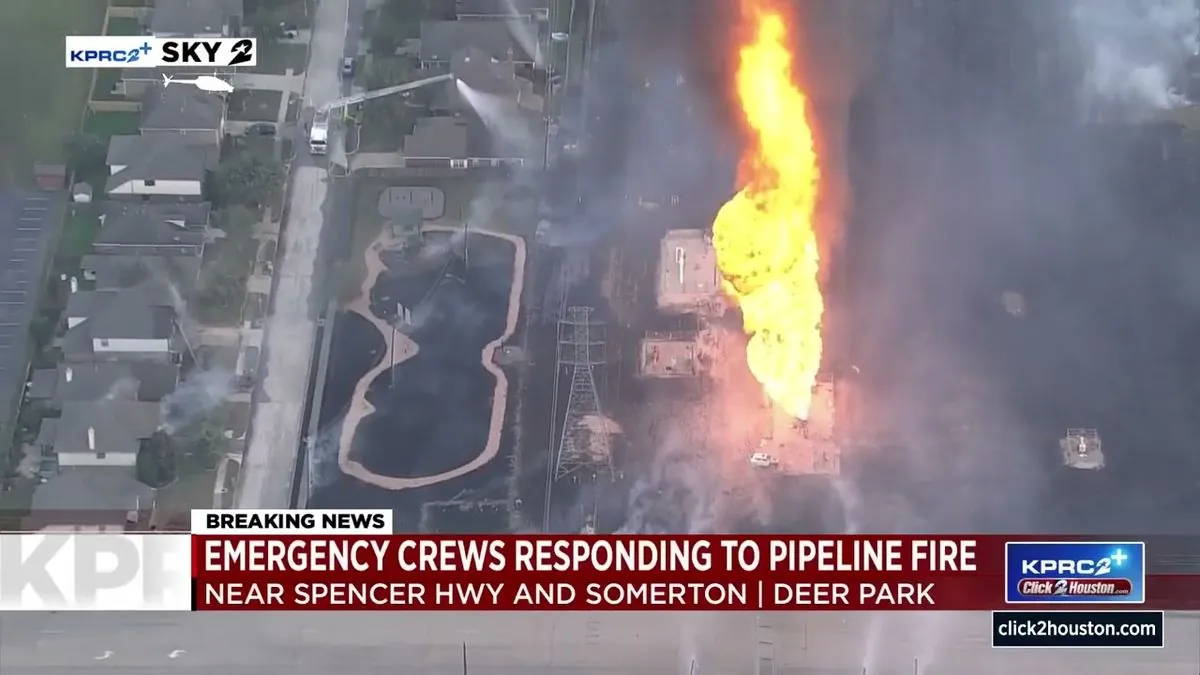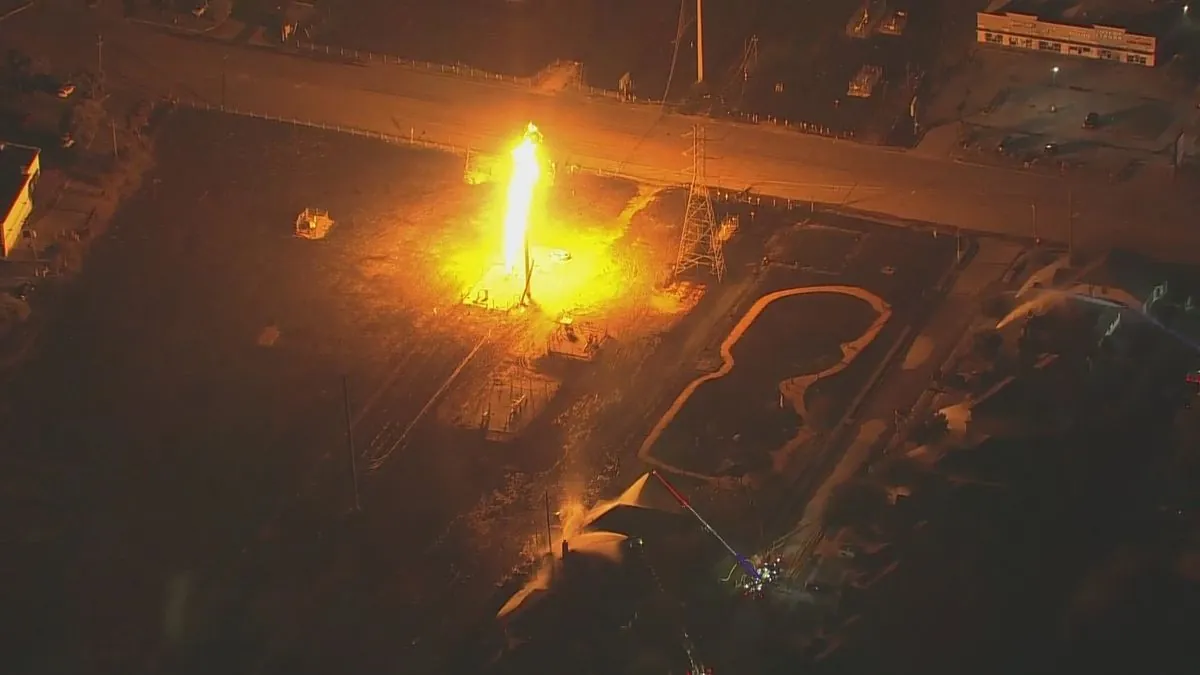Deer Park Pipeline Fire Subsides After Vehicle Collision Sparks Blaze
A pipeline fire in Deer Park, Texas, caused by a vehicle striking a valve, continues to burn. Officials report no evidence of terrorism as investigations into the incident and driver's identity proceed.

In Deer Park, Texas, a suburb of Houston, a pipeline fire continues to burn following an incident where a vehicle struck an above-ground valve. The blaze, which began on 2024-09-16, has significantly diminished but remains active as of 2024-09-17.
Energy Transfer, the Dallas-based Fortune 500 company owning the pipeline, anticipates the fire will extinguish itself as the remaining natural gas liquids (NGLs) in the pipeline burn off. The incident occurred when a sport utility vehicle breached a fence near a Walmart parking lot and collided with the valve.
Local authorities, including the police and FBI, have found no preliminary evidence suggesting a coordinated attack, classifying it as an isolated event. However, the driver's identity remains unknown, with the vehicle incinerated in the explosion.

The incident resulted in four injuries, including minor injuries to a firefighter. Nearly 1,000 homes were evacuated, and nearby schools implemented shelter-in-place protocols. The City of La Porte has slightly reduced the evacuation area south of the fire.
Robert Hall, a senior advisor at the nonprofit Pipeline Safety Trust, explained the prolonged burning time due to the pipeline's size and the distance between shut-off valves. The fire's intensity prevented firefighters from directly combating the blaze, limiting their efforts to protecting nearby structures.
This event has reignited discussions about pipeline safety in Houston, known as the energy capital of the world and home to numerous refineries and petrochemical plants. Hall noted that regulations implemented in 2022 for gas pipelines do not apply to liquid pipelines like the one involved in this incident.
"It sounded like a bomb went off. It scared me. You really don't know what to do when it's happening."
The Railroad Commission of Texas, which regulates the state's oil and gas industry, will begin its investigation once the site is deemed safe. Meanwhile, Energy Transfer and Harris County Pollution Control are conducting air quality monitoring, reporting no health concerns thus far.
As the largest county in Texas and third-most populous in the United States, Harris County faces unique challenges in balancing industrial development with public safety. This incident underscores the need for ongoing evaluation of safety measures, particularly in areas where pipelines intersect with residential and commercial zones.
The use of protective measures such as bollards – sturdy concrete-filled pipes designed to prevent vehicle collisions with sensitive infrastructure – may be a point of discussion in future safety assessments. However, as Hall pointed out, pipeline location regulations often vary by community, highlighting the complex nature of implementing uniform safety standards across diverse jurisdictions.
As investigations continue, this incident serves as a reminder of the critical importance of industrial safety measures in densely populated areas, particularly in regions with significant petrochemical presence like southeast Texas.


































